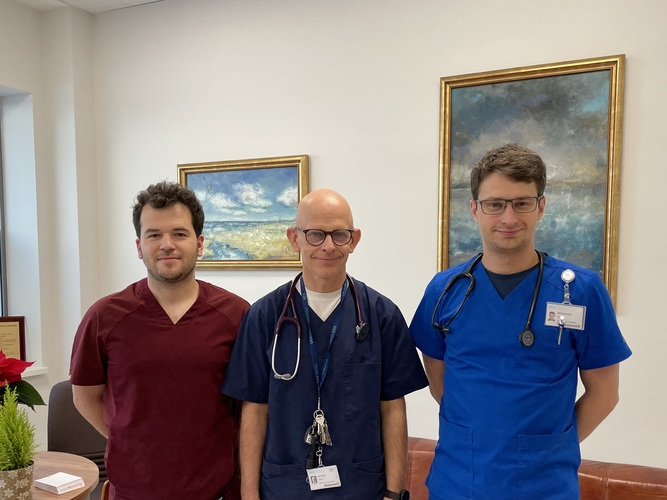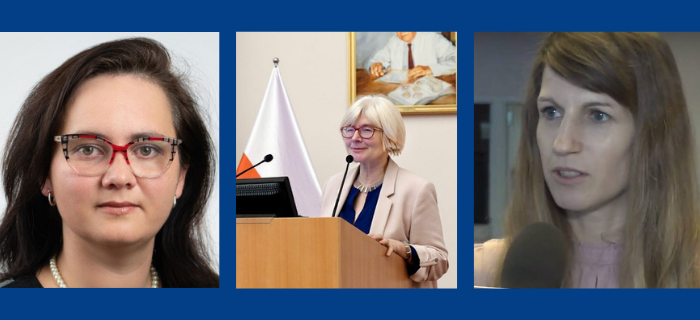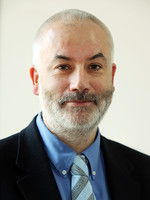MUG's clinical hospital in the European Reference Networks
15.02.2022
Thanks to the engagement of three research teams from our University, the MUG’s clinical hospital joined another Europan Reference Networks (ERN).
University Clinical Centre thanks to the engagement of team from the Department of Haematology & Transplantology consisting of: Prof. Jan Maciej Zaucha (unit’s Head), Michał Kurlapski, M.D. and Krzysztof Baran, M.D. joined the prestigious group of members of the EuroBloodNet (European Reference Network on Rare Hematological Diseases). It gathers highly-specialized centres treating patients with rare haematologic diseases. It’s currently consisted of 67 multi-disciplinar healthcare teams from 15 European Union countries.
– This platform gives a possibility to exchange information and experience between specialists and direct contact between patients and clinical units. It has an impact on improvement of medical care’s quality and effectiveness – explains Prof. Jan Maciej Zaucha, Head of the Department of Haematology & Transplantology of the MUG.

from the left: Krzysztof Baran, M.D., Prof. Jan Maciej Zaucha, Michał Kurlapski, M.D.
Work of team from the Department of Paediatrics, Haemathology & Oncology and Genetic Counseling Place of the UCC (Poradnia Genetyczna UCK) consisting of Dr. Habil. Beata Lipska-Ziętkiewicz, Assoc. Prof., Prof. Jolanta Wierzba and Karolina Śledzińska, Ph.D. has been appreciated by the ERN ITHACA (European Reference Network on Rare Congenital Malformations and Rare Intellectual Disability) during December’s unit’s board meeting in Madrid. Application’s preparation has also been supported by Wioletta Liesius, Plenipotentiary of the Director for Maganement System of the UCC. ITHACA gathers representatives of leading European centres for rare diseases and gives possibility of quick information exchange, cretating databases and preparation of education materials. It also cooperates with numerous other institutions, incluting pateints’ organizations.
– By that, it is an important part of improving quality of care for our patients and their families – emphasizes Prof. Jolanta Wierzba from the Division of Internal and Pediatric Nursing, Coordinator of the UCC’s Rare Diseases Centre.

from the left: Dr. Habil. Beata Lipska-Ziętkiewicz, Assoc. Prof., Prof. Jolanta Wierzba, Karolina Śledzińska, Ph.D.

ERN ERNICA (European Reference Network for rare Inherited and Congenital (digestive and gastrointestinal) Anomalies) is the third reference network which the UCC joined. It works on newborns’ congenital malformations requiring surgical treatment and gathers 40 hospitals from 12 EU countries, including 2 Polish centres – in Gdańsk and in Wrocław. Joinig the network by MUG’s clinical hospital was possible thanks to team consisting of Prof. Piotr Czauderna, Dr. Habil. Andrzej Gołębiewski and Stefan Anzelewicz, Ph.D. Department of Surgery and Urology for Children and Adolescents in Gdańsk, as third in Poland, belongs to three ERNs: PaedCan-ERN (children oncology), ERN eUROGEN (children urology) and ERN ERNICA.
– This is, for example, about defects in the abdominal wall, diaphragmatic hernias or esophageal fusion – says Prof. Piotr Czauderna, Head of the Department of Surgery and Urology for Children and Adolescents of the MUG about diseases studied and treated within the network.
By now, the University Clinical Centre worked in three reference networks:
- ERKNet (European Rare Kidney Diseases Reference Network),
- PaedCan-ERN (European Reference Network for Paediatric Cancer – haemato-oncology),
- ERN eUROGEN European Reference Network on Rare and Complex Urogenital Diseases and Conditions).
ABOUT THE EUROPEAN REFERENCE NETWORKS
ERNs are 24 virtual organizations established by the Board of European Reference Networks due to European Commission’s initiative. They bring together heathcare institutions from all over the Europe. To its goals belong:
- improving access to diagnostics and treatment of patients suffering from rare diseases or other complex clinical cases,
- combining the expertise and experience of specialist medical centers from 28 European Union countries,
- assistance in developing and improving standards of clinical conduct.
In order to diagnose and treat a given patient, ERN coordinators can convene a virtual consilium of medical specialists from various fields. It takes place with the use of a special IT platform and telemedicine tools. Thanks to the transfer of medical knowledge, the need to transport patients to distant facilities can be avoided. Up-to-date information on the activities of the ERN is available on the website of the European Commission.
Archives
- Academic Year 2024/2025
- Academic Year 2023/2024
- Academic Year 2022/2023
- Academic Year 2021/2022
- Academic Year 2020/2021
- Academic Year 2019/2020
- Academic Year 2018/2019
- Academic Year 2017/2018
- Academic Year 2016/2017
- Academic Year 2015/2016
- Academic Year 2014/2015
- Academic Year 2013/2014
- Academic Year 2012/2013